Fall - The Wonderful and Frightening World of The Fall
by Jon Rogers
published: 4 / 12 / 2010
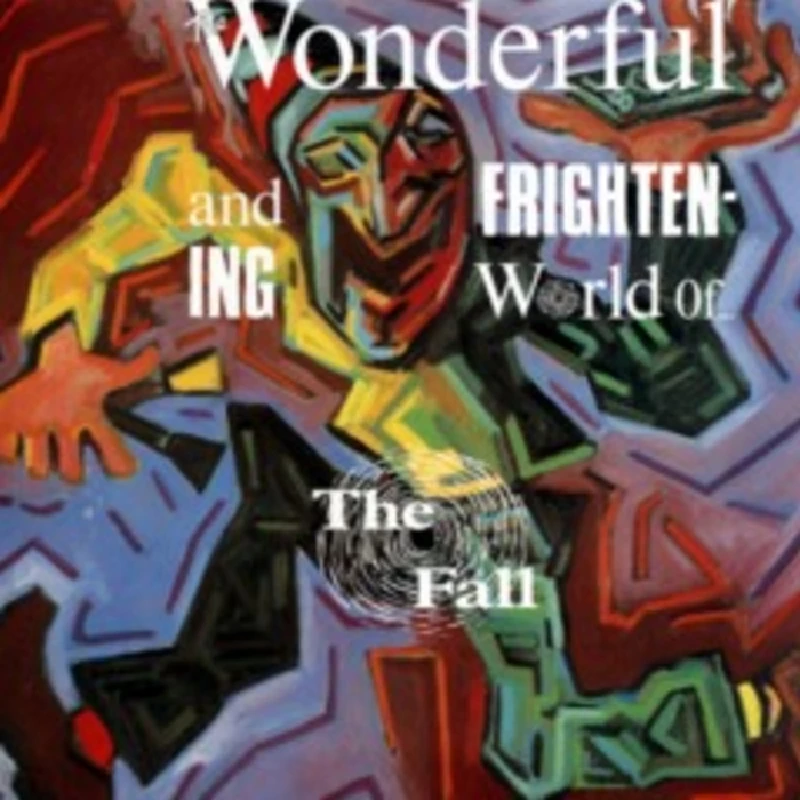
Label:
Select Label
Format: N/A
intro
In our 'Re:View' column, in which our writers look back at albums from the past, Jon Rogers writes of the Fall's 1984 album, 'The Wonderful and Frightening World of The Fall', which has just been released in a four CD box set
At the start of 1984 it was a very mixed bag for Mark E Smith and The Fall. There was a lot of activity going on. The band had delivered two sessions for the BBC Radio 1 – one for John Peel and one for David Jensen – and would hit the airwaves later on for a session with Janice Long and ‘Saturday Live’. And the band had gone on tour in Germany, Holland, Norway and the UK. Smith’s wife, Brix, was now a fully paid-up member of the band injecting a new lease of life into the line up of Craig Scanlon, Steve Hanley, Paul Hanley and Karl Burns as well as the leader Mark. But while creatively the band were on a roll, things behind the scene weren’t so good and the band’s relationship with its then label Rough Trade had – for the second time – soured; this time beyond repair. Talking about the split Smith stated in ‘A User’s Guide to The Fall’: “Rough Trade were soft, boring hippies. They’d go ‘Er, the tea boy doesn’t like the fact you’ve slagged off Wah! Heat on this number.’ And fuckin’... ‘The girl who cooks the fuckin’ rice in the canteen doesn’t like the fact that you’ve used the word ‘slags’. They had a whole meeting over the fact that we mentioned guns in one song. Y’know? ‘It’s not the policy of Rough Trade to be supporting fuckin’...’ And I’d go, ‘What the fuck has it got to do with you? Just fuckin’ sell the record, you fuckin’ hippy.’ I’d rather retire than work with them again.” Rough Trade boss Geoff Travis was more level-headed about the band leaving seeing it more in terms of Mancunian rivalry with the Smiths. “When The Smiths were successful that immediately alienated Mark E Smith,” Travis stated in ‘Morrissey and Marr: the Severed Alliance’. “I don’t think [he] was thrilled to see these upstarts pass him by and I can understand why he felt like that.” There was probably something in Travis’ remarks as Smith told ‘Sounds’ on 9 June 1984: “They [Rough Trade] were concentrating on that one big act.” Considering Rough Trade’s roster at the time Smith could only have been referring to the Smiths. According to Brix, Smith considered Morrissey a “twat”. Also weighing on Smith’s mind was his lack of money. According to Simon Ford’s biography ‘Hip Priest’ the band at the time were heavily in debt and were facing a “large and overdue tax bill”. The only sure supply of income was coming from playing gigs. Smith’s answer was to sign with a label that had financial backing from WEA. The Fall jumped ship to the home of the likes of Gary Numan and Tubeway Army, Bauhaus, the Icicle Works and the Cult – the Battersea-based Beggars Banquet. “We must be the only ones on the label who get good reviews,” reflected Smith the following year. “I like it because they’re straight. The other labels we’ve been on, you get the bleedin’ tea boy interfering in the cover design. Everybody thinks they’ve got a right to say something to yer, but Beggars just want to have hit singles.” Brix was certainly happy with the new label, headed by Martin Mills: “Beggars was this happy family with big warm open arms and they’d had singles at number one with Gary Numan. They could make it happen. It was more money and they were great to us and in retrospect I must say it was my best label of all.” And Beggars certainly delivered. Rough Trade was very much an ‘indie’ label whereas Beggars liked to raid the national charts when they could. Before the Beggars era only one Fall album had made the national charts – at a lowly #71. During the entire six years at Beggars each album made the charts and they had seven hit singles. And they also made it on to Channel 4’s ‘The Tube’ and the BBC’s ‘The Old Grey Whistle Test’, shows that had never bothered with the band before. Brix brought with her a much more pop aesthetic to the band and was commercially minded, “bring a bit of light into the shadows” as she tells Dave Simpson in ‘The Fallen’, 'The Guardian' journalist’s search for as many ex-Fall members as he could find. While the band’s riff and a rant style was still very much in place, she added lightness and helped draw out any sort of melody that might have otherwise been lost beneath the band’s relentless bombardment. “I just added a hook where there wasn’t one before. I didn’t try and control [...] I just thought the band deserved so much more success than it was having. I was more like a big supporter and pushing it as far as it could go to reach as many people as it could reach.” But according to Smith’s own memoirs, ‘Renegade: The Lives and Tales of Mark E Smith’ Brix’s drive for a more commercial sounding Fall is overstated: “It’s incorrect to say that Brix smoothed the rough edges off the band. People only said that because of the way she looked.” And Brix herself admits that it was a collaborative effort that kept Smith in the dominant position as band leader. Often she would take a song to him and he would then play around with it and alter it to his liking. Brix saw herself as a “soft, melodic part” who “made the Fall more palatable”. Whoever was responsible though it was highly fortuitous timing. The rules of the game were slowly changing. Previously ‘independent’ bands that had sprung up in the aftermath of punk had kept to their own little world, shunning all aspects of perceived commerciality for ‘credibility’ and artistry and only ever making appearances in the ‘alternative’ charts. Lately though bands like the Cure and New Order, who had made their presence felt in the national charts, started playing bigger venues outside of the club circuit and even making the odd appearance on the BBC’s ‘Top of the Pops’. As Simpson points out, Smith was canny enough to know which way the wind was blowing, and knew that the band had to “adapt or die”. Smith was certainly aware of the changing musical landscape, as he indicated to the ‘Melody Maker’ on 21 April 1984: “When I started out I wanted to wipe out pop music and start again and I thought there were some writers who felt the same way. Now of course it’s pop, pop, pop all the way, and being a pop musician is supposed to be something terribly clever and smart.” The band’s debut for the label got them off to an inauspicious start though with the single ‘Oh! Brother’ in June being largely ignored. The second single ‘C.R.E.E.P’ in August didn’t do much better but did gain some attention, if only to mull over just who the creep might be. Later on Smith would deny it was about singer Morrissey or the band’s old guitarist Marc Riley. As usual the band had been airing a number of songs that would appear on ‘The Wonderful and Frightening World of The Fall’ before it was released. ‘2 x 4’ got an airing on the 3 January Peel Session – along with ‘Words of Expectation’ – and songs like ‘Lay of the Land’ and ‘Copped It’ had been appearing in the band’s set at least since April as the song appeared on the bootleg ‘C.R.E.E.P. Show’ which originated from a gig in Munich. Their previous album, 1983's ‘Perverted by Language’ (which featured Brix in a minor role) hadn’t been that well received by the critics and even looking back in his memoirs in 2008, ‘Perverted...’ wasn’t one of Smith’s favourite albums by the band: “It all got a bit monotonous – maybe that’s why it’s not as well received as some of the others. There’s a difference between plain monotony and creating a syndrome by hitting the same note again and again; when that happens it’s great. But plain monotony can get fucking tedious. There’s no inflection there. That’s why I decided to pop it up a little and alter the rhythms.” Whether it was Smith or Brix – no doubt a combination of the two – the Fall had much more of a pop influence. The album itself harks back to what many critics see as their finest hour, 1982's ‘Hex Enduction Hour’, but with more of a pop sheen to its other worldly qualities. Also helping to soften the medicine was the band’s choice of producer, the commercially minded John Leckie. Leckie’s CV was a very mixed bag taking in the likes of the Doctors of Madness, Magazine and XTC as well as the likes of Simple Minds and years later, the Stone Roses. “I was aware of the Fall,” reflected John Leckie. “I was interested in it because it was leftfield. It was raw-edged, experimental, no-holds barred, do what you like. As long as you’d try and get Mark to sing in tune. I was really interested in the experimental nature of it. I didn’t know what I was going to get myself into because I’d met John Fogarty, a prosperous cockney sort of guy and Mark and Brix were happy and just newly married, dressed up and smart. Of course when you get in the studio it’s a different thing.” The studio of choice was Focus Studios in Borough Market, London Bridge in the south of the capital and basically booked because it was cheap. Oddly enough one the band had finished there it was taken over by PWL and was the Stock Aitken and Waterman studios – The Hit Factory. At the time though Focus was, according to Leckie, “good if tatty”. The Fall’s recording ethos was pretty much to record songs “as live” in a couple of takes. If songs weren’t working they’d drop it and move on to another, which by then was a pretty normal Fall recording technique. “We’d set up like we’re going to be playing live and do the songs,” remembered Scanlon. Cropping up as a “friendly visitor” to Focus Studios where the band were recording was the Virgin Prunes’ Gavin Friday who popped up on the odd song like ‘Copped It’ who ended the song with the line: “It ain’t what you do but the way that you do it.” Elsewhere the various wit and wisdom – and observations – of Mark E Smith were very much in evidence. ‘Craigness’ followed on from the likes of ‘Joker Hysterical Face’ and detailed the strange goings on of a downstairs neighbour of the Smiths. As with their 1982 album there was the strong influence of Smith’s belief and interest in the paranormal and psychic. Smith believed that he was in some way connected to the ‘vibrations’ of a place and his writing was somehow clairvoyant. Back in 1996 he joked: “I used to be psychic but I drank my way out of it.” That interest in writers like Philip K Dick as well as Arthur Machen and H. P. Lovecraft came to the fore in songs like ‘Elves’ where Smith yells out: “The fantastic is in league against me.” That psychic aspect was perhaps fully portrayed in the closing song of the album ‘Disney’s Dream Debased’. In the liner notes to the new four CD reissue of the album Brix relates how the song was based on an actual event when she and her husband visited Disneyland. Dolly Rigine Young, 48, from Anaheim, California met her unfortunate demise when she fell from the car she was in on the Matterhorn roller coaster ride and fell in front of another ride which decapitated her. The pair though had only just been on the ride themselves with Smith getting off the ride in tears, according to Brix, and saying that the ride was “evil”. With hindsight it is perhaps a simplification to overstate Brix’s influence. Of the nine songs on the original album, Brix only had three writing credits, and one of those, ‘Elves’ was basically a stripped down rewrite of the Stooges’ ‘I Wanna Be Your Dog’. Brix, in the liner notes, admits: “I think it was ‘I Wanna Be Your Dog’, of which at the time I was truly unaware. I must have heard it and not even realised what I had done.” Steve Hanley though was perhaps more honest: “What we used to do is try and hide that kind of thing because everyone lifts stuff, you know, but you try and hide it and try and make it your own. But by the time we’d finished with ‘Elves’ it sounded nothing like The Stooges.” Along with ‘Disney’s Dream Debased’ Brix also had a hand in the opening ‘Lay of the Land’, a disconcerting, rockabilly thrash-about that opened with a doom-laden chant that was lifted from Nigel Kneale’s sci-fi television series ‘The Quartermass Conclusion’. While the band was already known for having two drummers at times, ‘Lay of the Land’ had two bass players. As well as the band’s usual bassist, Stephen Hanley, drummer Karl Burns also plucked away at the riff that Brix had come up with. “’Lay of the Land’ was about leylines running through the country,” explains Brix. “Mark was, like, really into spiritualism and haunting and energy and stuff like that.” ‘The Wonderful and Frightening World of The Fall’ was unleashed to the public in October 1984 and made it all the way to #62 in the national charts. While hardly a commercial hit in terms of sales it was the best the band had done to date. Especially considering that all eyes were focused on Frankie Goes to Hollywood’s debut ‘Welcome to the Pleasure Dome’ which was the big hit of the year. But 1984 had also seen some important releases. Bruce Springsteen had returned with the anti-Vietnam anthem ‘Born in the USA’ while Lloyd Cole and the Commotions had released their literary influenced debut with ‘Rattlesnakes’ and Julian Cope veered dangerously close to being something of an acid casualty with ‘Fried’. And US hardcore was showing signs of maturity too. Hüsker Dü became more melodic with the double album ‘Zen Arcade’ and the Minutemen were on form with ‘Double Nickels on the Dime’. ‘The Wonderful and Frightening World of The Fall’ sits in an odd place amongst the band’s other albums causing much debate amongst the hardcore followers. It’s not quite abrasive enough to stand alongside earlier albums like 1980's ‘Grotesque’ or ‘Perverted by Language’ or even ‘Hex Enduction Hour’ but neither is it the more commercially viable albums like 1985's ‘This Nation’s Saving Grace’ or 1986's ‘Bend Sinister’ which would see Brix come more into her own. Or even with singles like their cover of the Kinks’ ‘Victoria’. This mammoth four CD re-issue while certainly worth the asking price thanks to a live recording from Pandora’s Music Box Festival and plenty of out-takes and radio sessions might just be scrapping the barrel a bit. Along with all the relevant singles released at the time – which had already been gathered up on the CD re-issue. Just how many versions of (admittedly great) songs like ‘No Bulbs’? This edition has four and it doesn’t even appear on the original album. Still, there’s plenty to get your teeth into. The fourth disc, the live recording sees the band on fine form rattling through spritely versions of ‘Lay of the Land’ and ‘Pat – Trip Dispenser’. Perhaps for the dedicated and already converted but well worth a listen.
Track Listing:-
Band Links:-
https://www.facebook.com/thefallmusichttp://thefall.xyz/
https://twitter.com/fallnews
Picture Gallery:-
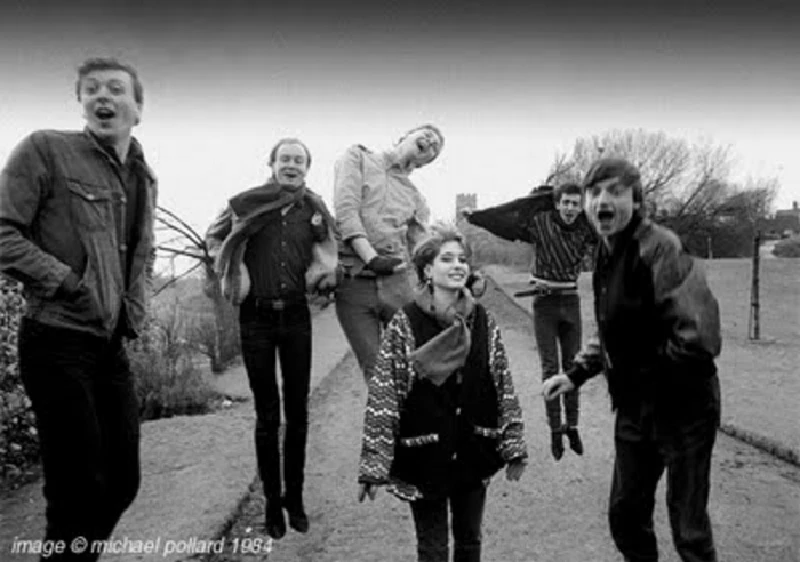

live reviews |
|
Under the Bridge, London, 10/6/2014 |

|
| At Under the Bridge in London, Dastardly watches Mark E. Smith and the Fall make a caustic and abrasively triumphant set |
favourite album |
|
Hex Enduction Hour (2007) |
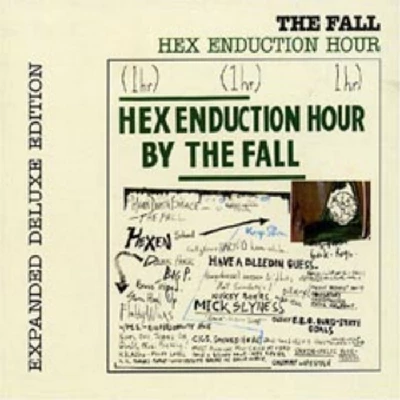
|
| In the latest in our 'Re : view' series, in which our writers look back at albums from the past, Jon Rogers writes about the Fall's forbidding 1981 album, 'Hex Enduction Hour' |
| Live at the Witch Trials (2003) |
features |
|
Ten Songs That Made Me Love... (2018) |
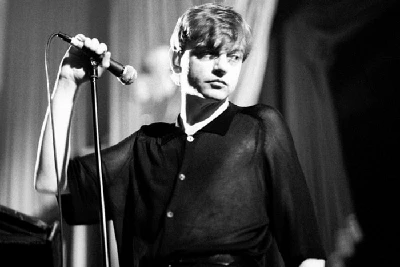
|
| In 'Ten Songs That Made Me Love..' Jon Rogers writes about he went from being a so-so fan of the late Mark E. Smith's The Fall to an absolute fanatic as he reflects on his favourite songs by them. |
photography |
|
Photoscapes (2017) |

|
| Darren Aston takes photographs of The Fall at the Arts Club in Liverpool on the 21st January |
reviews |
|
Wise Ol’ Man (2016) |
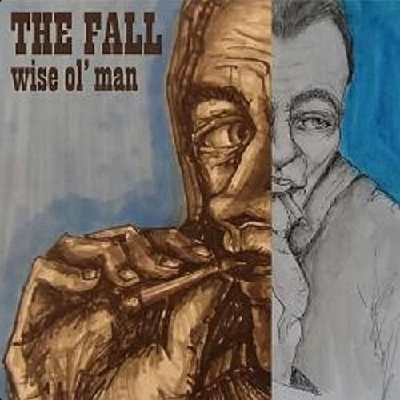
|
| Fabulous new EP from Peel favourites The Fall, which is one of the highlights of their career |
| Re-Mit (2013) |
| Ersatz GB (2011) |
| Your Future Our Clutter (2010) |
| Reformation Post TLC (2007) |
most viewed articles
current edition
Carl Ewens - David Bowie 1964 to 1982 On Track: Every Album, Every SongArmory Show - Interview with Richard Jobson
John McKay - Interview
Colin Blunstone - Thalia Hall, Chicago, 16/7/2025
Bathers - Photoscapes 1
Billie Eilish - O2 Arena, London, 10/7/2025
Visor Fest - Valencia, Spain, 26/9/2025...27/9/2025
Loft - Interview
Sir Tim Rice - Interview
Robert Forster - Interview
previous editions
Manic Street Preachers - (Gig of a Lifetime) Millennium Stadium, Cardiff, December 1999Heavenly - P.U.N.K. Girl EP
Beautiful South - Ten Songs That Made Me Love...
Peter Perrett - In Dreams Begin Responsibilities Interview Part One
Boomtown Rats - Ten Songs That Made Me Love....
Oasis - Oasis, Earl's Court, London, 1995
Trudie Myerscough-Harris - Interview
Coldplay - Wembley Arena. London, 16/8/2022
Prolapse - Interview
Pixies - Ten Songs That Made Me Love...
most viewed reviews
current edition
Davey Woodward - Mumbo in the JumboSick Man of Europe - The Sick Man of Europe
Lucy Spraggan - Other Sides of the Moon
Phew, Erika Kobayashi,, Dieter Moebius - Radium Girls
Suzanne Vega - Flying With Angels
Bush - I Beat Loneliness
Amy Macdonald - Is This What You've Been Waiting For?
Alice Cooper - The Revenge of Alice Cooper
Blueboy - 2
Cynthia Erivo - I Forgive You
related articles |
|
Imperial Wax: Interview (2020 |

|
| Following the death of The Fall’s legendary frontman Mark E. Smith last year the final, longest serving line up to back him have re-grouped to form new outfit Imperial Wax. Denzil Watson talks to them about their acclaimed debut LP 'Gastwerk Saboteurs' and future plans. |
| Nicky Crewe: Feature (2015) |
Pennyblackmusic Regular Contributors
Adrian Janes
Amanda J. Window
Andrew Twambley
Anthony Dhanendran
Benjamin Howarth
Cila Warncke
Daniel Cressey
Darren Aston
Dastardly
Dave Goodwin
Denzil Watson
Dominic B. Simpson
Eoghan Lyng
Fiona Hutchings
Harry Sherriff
Helen Tipping
Jamie Rowland
John Clarkson
Julie Cruickshank
Kimberly Bright
Lisa Torem
Maarten Schiethart